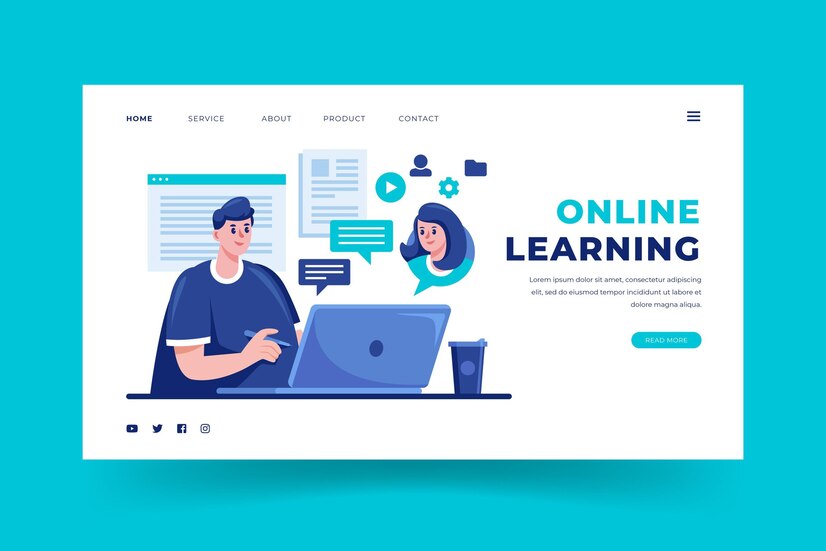Table of Contents
- Introduction to Online Learning
- Benefits of Online Education
- Challenges and Solutions
- Impact on Traditional Education
- The Future of Education
Introduction to Online Learning
Digital transformation has significantly impacted the education sector in recent years, with online learning platforms emerging as powerful tools for delivering educational content. These platforms, such as virtual learning platform, have redefined how students access learning materials and interact with educators. By harnessing the power of the internet, these platforms can reach a global audience, breaking down geographical barriers and democratizing access to education. This shift in educational delivery is not a mere trend but represents a fundamental change in how we perceive and engage with learning opportunities.
Online learning goes beyond being a fad. It represents a drastic change that leverages innovative tools to offer engaging, tailored learning opportunities. With the increased adoption of these platforms by academic institutions, more students can benefit from their flexibility and accessibility. Students can have a more efficient learning experience by participating in video conferencing, live chats, and interactive forums.
Benefits of Online Education
- Accessibility and Flexibility: One of online education’s most notable benefits is that it is highly accessible. Students from various places can receive top-notch education without physically attending university. This creates educational chances for people who may have been previously left out because of where they live, disabilities, or financial limitations. Furthermore, with online learning, learners have the flexibility to learn at their preferred pace and time, enhancing education’s inclusivity and adaptability to cater to individual needs. This flexibility primarily benefits people with jobs, children, or other responsibilities, helping them balance their duties while pursuing their educational goals.
- Cost-Effectiveness: Another crucial benefit of online education is its cost-effectiveness. Traditional education involves significant expenses, including transportation, accommodation, and physical textbooks. In contrast, virtual classrooms can drastically reduce these costs. Many online courses and resources are free or at a lower cost than conventional education facilities. Moreover, learners can save money by eliminating commuting and living expenses associated with on-campus education. This financial accessibility makes higher education achievable for a broader audience, thus contributing to the democratization of education.
Challenges and Solutions
- Technological Barriers: Despite the numerous advantages, online education has its challenges. One primary challenge is the digital divide, where some students need access to necessary technology and reliable internet connectivity. These essential tools allow students to participate fully in online learning activities. Various initiatives are in place to address this issue, such as providing affordable devices and internet access to underserved communities, bridging the gap, and ensuring equitable access to education for all students. Furthermore, governments and organizations are investing in infrastructure to improve internet connectivity in remote and rural areas, thus enabling more students to benefit from online educational resources.
- Quality of Education: Ensuring the quality and efficiency of online courses is a multifaceted endeavor that requires attention to several key areas. Firstly, the establishment of robust accreditation systems is crucial to maintaining consistent standards across online educational offerings. These systems should be designed to evaluate the quality of online courses and ensure that they meet specific academic benchmarks. Furthermore, cultivating a sense of togetherness and community in the online learning environment is essential. Joint initiatives and engaging conversations can foster a supportive and collaborative atmosphere, improving student engagement and understanding. By addressing these key areas, educators and institutions can work towards maintaining the same rigorous standards in online learning as those upheld in traditional face-to-face education.
Impact on Traditional Education

The emergence of online learning platforms has caused conventional educational institutions to reconsider their teaching and learning methods. Numerous academic institutions have implemented hybrid models integrating traditional classroom instruction and online learning opportunities to offer students more flexibility and a comprehensive array of resources. The merging of online and offline education has spurred creativity in teaching methods and improved students’ educational interactions. Educators integrate multimedia, interactive simulations, and real-time feedback into their lesson plans to build a dynamic and efficient learning atmosphere.
The Future of Education
- Continuous Learning and Upskilling: In the rapidly evolving modern world, the need for ongoing learning and skill enhancement is of paramount importance. This is mainly due to the swift pace of technological progress and the ever-changing demands of the job market. Fortunately, online learning platforms offer individuals a convenient and flexible means to acquire new skills and knowledge at their convenience. This not only allows them to stay competitive but also enables them to stay abreast of the constant changes in the professional realm. As the availability of educational resources continues to grow, the call for lifelong learning is projected to increase, granting individuals greater autonomy over their personal and professional advancement.
- Global Collaboration: Web-based education enables students and educators worldwide to collaborate and share knowledge, fostering a global learning community. This interaction encourages cultural exchange and gives students a broader understanding of different perspectives and ideas. Students can gain invaluable insights and skills that prepare them to thrive in a globalized society by participating in international online forums, group projects, and virtual exchanges.
In conclusion, online learning platforms are transforming the education landscape, making it more accessible, flexible, and inclusive. By addressing challenges and leveraging technology, we can continue to improve and innovate educational experiences for learners worldwide. The ongoing evolution of online education promises to create a more connected, informed, and empowered global community where knowledge is readily accessible to all who seek it.

